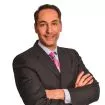On April 29, 2021, the Health and Human Services Office of Inspector General ("OIG") issued Advisory Opinion 21-02. The Advisory Opinion addresses a proposed arrangement involving a health system, certain orthopedic surgeons and neurosurgeons employed by that health system, and a management company seeking to invest in an ambulatory surgery center ("ASC"). The proposed arrangement would allow the health system to own 46%, the surgeon investors to own 46%, and the third-party management company to own the remaining 8% of the new ASC. The primary issue raised by the opinion is whether or not the proposed arrangement would violate the federal anti-kickback statute ("AKS") such that sanctions and/or monetary penalties could be imposed.
The AKS makes it a criminal offense to knowingly and willfully offer, pay, solicit, or receive any remuneration to induce, or in return for, the referral of an individual to a person for the furnishing of, or arranging for the furnishing of, any item or service reimbursable under a federal health care program. However, the AKS also contains a safe harbor provision (“Safe Harbor”) that removes certain circumstances and conduct from the scope of the AKS. For example, the Safe Harbor protects payments of investment returns by an ASC to owners who refer patients to the ASC. Under that scenario, the Safe Harbor typically protects physician investors who have derived at least one-third (1/3) of their medical practice income from the performance of procedures that will be reimbursed by Medicare if performed in the ASC for the previous fiscal year or 12-month period (“1/3 Test”).
Even though some of the surgeon investors could not meet the 1/3 Test, the OIG concluded that the proposed arrangement was at a sufficiently low risk of running afoul of the AKS and that OIG would not impose administrative sanctions on the health system or management company in connection with the proposed arrangement. OIG emphasized the following points, largely based on a certification submitted by the health system, in reaching its determination:
- Although one or more of the neurosurgeon investors would fail to meet the Safe Harbor 1/3 Test, the surgeon investors would use the new ASC on a regular basis as part of their medical practices;
- The surgeon investors would rarely refer patients to each other for ASC procedures;
- Each physician investor would personally perform almost all ASC qualified procedures that he or she refers to the ASC;
- The proposed arrangement would contain certain safeguards to reduce the risk that the health system would make or influence referrals to the new ASC or the surgeon investors, such as fair market compensation and non-tracking of referrals;
- The proposed arrangement would include policies that do not award investors who serve as referral sources for the ASC;
- Certain safeguards would reduce the risk that the investors would receive profit distributions for referrals of patients to the ASC;
- Certain safeguards would reduce the risk of fraud and abuse by treating patients receiving medical benefits or assistance under any federal health care program in a nondiscriminatory manner.
Among the points relied upon above, perhaps most noteworthy is the fact that the OIG permitted surgeon investors who did not pass the 1/3 Test to proceed on the basis that they would use the ASC on a “regular basis” as part of their medical practices. Additionally, the health system's representations that surgeon investors would perform nearly all of their own referred procedures was highly significant to OIG's analysis.
The content of this article is intended to provide a general guide to the subject matter. Specialist advice should be sought about your specific circumstances.




